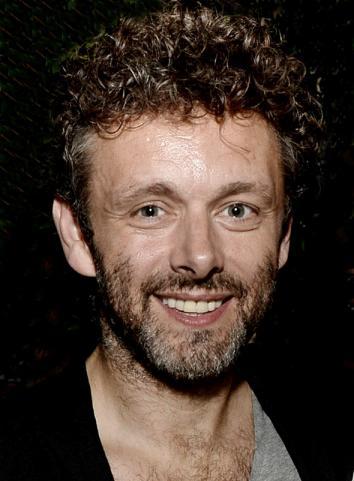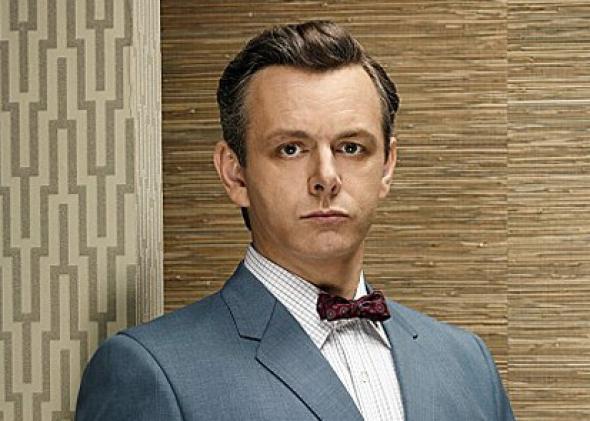Masters of Sex, the new Showtime series premiering this Sunday at 10 p.m., tells the story of pioneering sex researchers William Masters (Michael Sheen) and Virginia Johnson (Lizzy Caplan) and their often frustrated attempts to make a scientific study of human sexuality, beginning in the 1950s. Slate television critic Willa Paskin calls it the best new show of the fall season.
I spoke with Sheen about the secret of portraying real people, the challenges of acting when surrounded by naked women, and whether a cabal of Welsh actors are taking over Hollywood.
Slate: You’ve had a lot of success playing real people: Brian Clough, Kenneth Williams, David Frost, Tony Blair, and now William Masters. Did you approach Masters differently from those other biographical roles because viewers don’t know anything about his tics and traits or his physical appearance?
Michael Sheen: That was one thing that I didn’t, thankfully, have to worry about. Trying to look like the real person is always the thing that people talk about, but it’s actually the least important element. All you need is to make an audience comfortable with the fact that you’re playing someone who’s a real person, and as long as they accept you and go beyond thinking of you as the actor doing a performance and start relating to the character, then you’re done. With very well-known people, that’s slightly more problematic, because in order to make someone comfortable, the first hurdle is to deal with whether you look like them or not. If you put too much focus on that, then the audience will put too much focus on it.
Slate: What attracted you to this project?
Sheen: It allowed me to explore a character in a completely different way to how I’ve been able to explore characters in the past, because the canvas is different. You’ve got 12 hours of storytelling per season; that’s very different from telling a story over an hour and a half or two hours. It’s a storytelling process that I can have an active part in creating over time, because the things that I discover about the character feed back into the story lines that we’re creating. We’re at a point where what is allowable to explore on TV, certainly on the cable channels, is very open. The practitioners are very, very skilled. It’s about a subject that is endlessly fascinating, that we will always be drawn to, because we’re dealing with it all the time. It doesn’t matter whether this is set in the ’50s or not, it’s exactly what we’re dealing with in our homes and in our minds and in our bedrooms every day. And the character himself was so full of contradictions, so full of paradoxes; there’s so much that is not immediately understood about him, so much to discover and explore, that I thought that in this format, where you have so much time to explore, he’s a perfect character to do that with.
Slate: I’m curious how being on a show about sex is different from other projects. You must spend a lot of time around naked people. How do you cope with that?
Sheen: Well, I suppose you cope with it by just getting used to it. And by having very clear parameters. The hardest thing is where there are these gray areas and people don’t quite know if this is all right, and are you OK with this? So, very, very early on, I wanted to make sure that there was no gray area. When you have an actress who’s 20, for whom this is maybe a second job, who’s got three days on the show, and she has to be naked at one point, it doesn’t matter how much you say to her, “If you’re not comfortable with anything, say something.” She’s not going to. So you have to be realistic, and go, “OK, what can we do and put in place to make sure that that’s addressed?” So I was quite hard on people about making sure that it was a safe environment, a comfortable environment, and that there was no opportunity for anyone to feel exposed in the wrong way. That helps you get comfortable with the whole thing as well. Then it’s just a matter of immersing yourself in that world. We’re talking about sexuality and sex all the time. On set, off set. So eventually you just get used to it.
Slate: You have a sex scene in one of the early episodes. When most of us go to the office, we don’t typically take our kit off and simulate coitus, but I presume that’s something that you’ve had to do before.
Sheen: That’s something that most actors deal with a lot of the time. What was different about this was that I was watching a lot of people do things that you very rarely see. I mean, I’ve watched so many women masturbating now. And genuinely, there’s not a massive difference between someone simulating that and actually doing it. That’s not something that I’m used to, really.
In a way, having a sex scene is the most normal thing. It was all the other stuff that was very different. Even simulating giving a woman an examination, with her feet in the stirrups and all that. I’ve never seen that. I’ve never seen a partner of mine do that. And even just putting your hand under the gown and pretending—it’s very intimate. It’s challenging in all kinds of ways.
Slate: The way you’re talking about all this reminds me of the way a medical doctor deals with the human body—no tittering, no tee-hee. I wonder, as an actor, do you have the same kind of professional separation as a physician?
Sheen: I went to meet some gynecologists as research, and I remember saying to one of them: “As a heterosexual man, you deal with the most sexual areas of a woman. In different circumstances, you would be relating to that woman in a very different way. So how does that work?” And every one said to me: “Well, it’s like you switch off a part of your brain. You choose to not activate a certain area, and you just relate in a very different way.” I couldn’t really get my head around it at the time. And then I discovered that it’s true. I’d be in a scene with very attractive, naked, young women, who in other circumstances I would act very differently with. I always thought that I would have to pretend that I wasn’t interested. But you can switch that off. I’ve never experienced that before in my life.

Photo by Kevin Winter/Getty Images
Slate: Obviously, there’s an amazing tradition of Welsh actors, and now with Matthew Rhys and Ioan Gruffudd hitting it big in America, we’re becoming more aware of it here. There are stories of the “Hollywood Taffia.” Is it real, and are you a member of it?
Sheen: No, I don’t think so.
Slate: But you’re aware of being part of this Welsh tradition? I was a little surprised to hear your “real” accent. It’s very Welsh!
Sheen: I identify myself as a Welshman; I’m from Wales. I know Matthew, I know Ioan, I know Rhys Ifans. Damian Lewis claims he’s Welsh; he’s not. Christian Bale claims he’s Welsh; he’s not. There’s definitely a kind of solidarity between the Welsh actors out here. We know each other and are friends, but I wouldn’t say there’s a club identity or anything like that.
This interview has been edited and condensed.
